The joy of my return to Paris after two months away began with a movie on the airplane.
“Diplomatie,” a 2014 Franco-German production, is set on the night of August 24, 1944. Nazi General Dietrich von Choltitz, recently arrived as governor of occupied Paris, is under orders from Adolf Hitler to blow up the city rather than surrender. The Americans are closing in, and the Nazis have placed explosives on the bridges, the Eiffel Tower, the Arc de Triomphe, the Opéra and even Notre Dame.
General von Choltitz , played by French-Danish actor Niels Arestrup, is a good Nazi soldier. He has already captured Rotterdam and Sebastopol, at great human cost. And he knows that the families (in his case, a wife and three children) of officers who disobey Hitler’s orders are often executed as punishment.
Into his office on the sixth floor of the Hotel Meurice, on the rue de Rivoli, comes Raoul Nordling, the Swedish consul. The two men had been in contact before, during negotiations for an end to prison executions. Nordling knows of the plan to faire sauter Paris — destroy it. During a long night of emotional conversation, he tries to persuade Choltitz not to leave this legacy. (Trailer here)
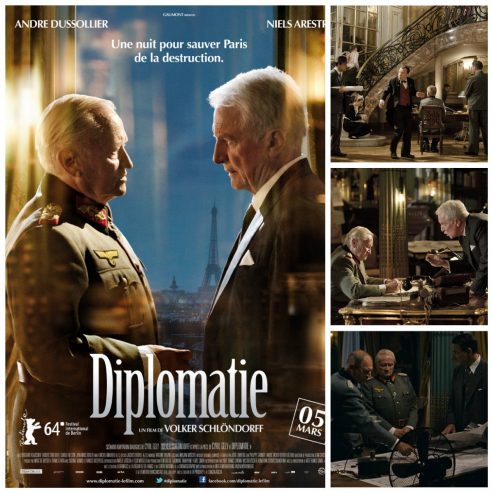
“Your children will forever be branded as the spawn of the destroyer of Paris,” says Nordling, played by French actor André Dussollier, adding that the German people will bear the stigma for generations to come.
Nordling walks to the window and throws it open as the sun is rising, to reveal the Tuileries, the distant spires of Notre Dame and the Eiffel Tower. This, we are meant to think, is what convinced the general to spare the city. Choltitz rescinds the order to detonate the explosives; Nordling says he will obtain safe passage out of Germany for the general’s family. The hotel kindly provided a photo of what that view looks like now.
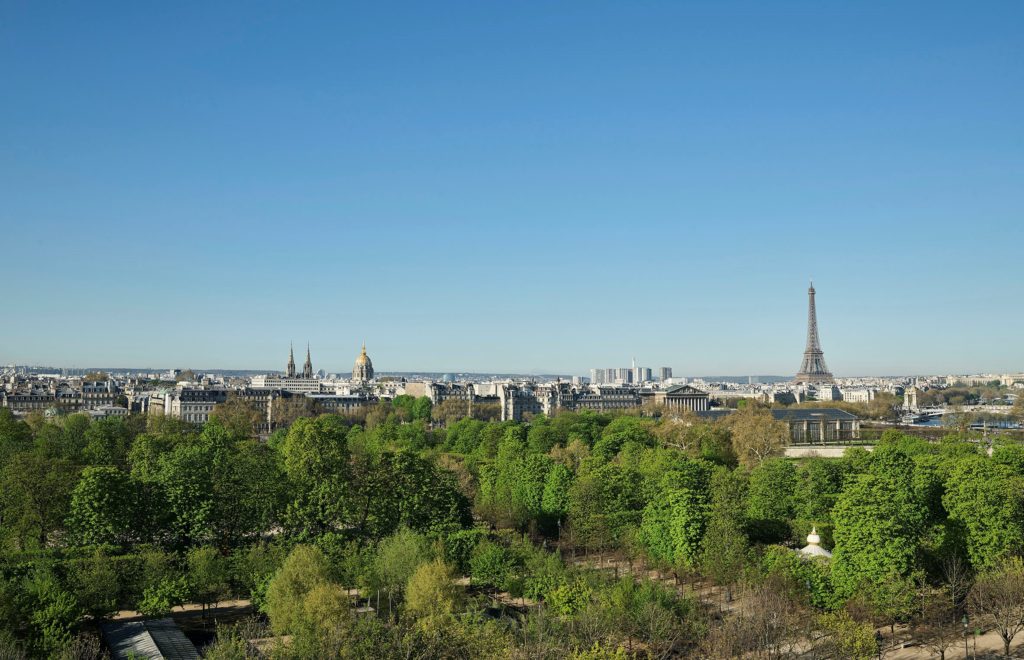
Photo: Mark Read
By this point in the movie, all I could think about was how much I loved those monuments, and how devastating it would have been for the world if they had been erased. I tend to write about Paris, my adopted home, as a matter-of-fact place where my children went to school and sports and dance class, where Charlie and I worked and socialized, whose outer ethnic neighborhoods reveal more of the city’s true face than do the tourist stereotypes of the Latin Quarter, say, or the Champs-Elysées.
But I also remember how thrilled I was the first time, at age 16 with my family, that I walked the great axis of central Paris, from the place de l’Etoile to the Louvre. Even as a teenager I could appreciate the extraordinary beauty and history of what I was seeing, and my feelings have never changed.
As the plane landed, I resolved to visit the Paris that might have been lost.
A few days later, I started at the Meurice. It was the Nazi headquarters during the war, but today it is an ultra-luxury palace hotel. Prices for rooms on the sixth floor start at a rack rate of €1,800.
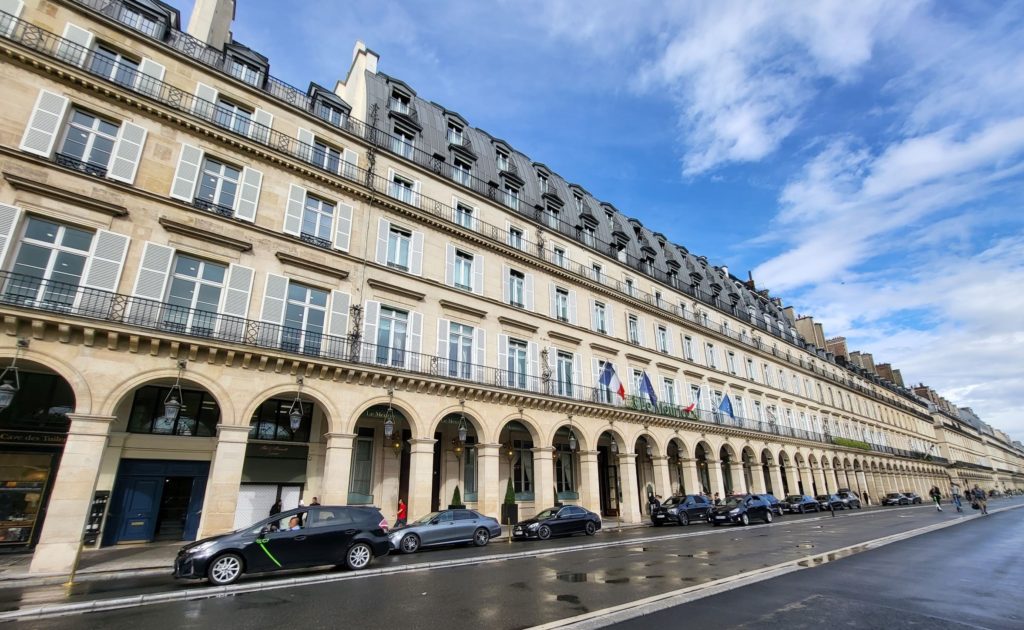
This is a re-creation of what the Meurice looked like during the war, taken from my TV screen when we watched the 1966 film “Is Paris Burning?”
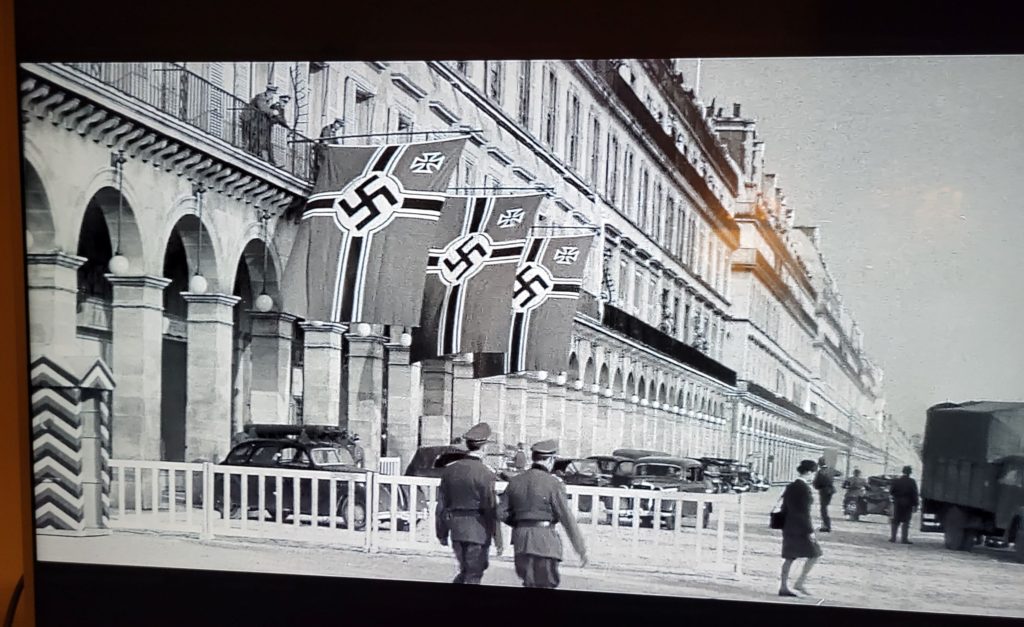
Right across the rue de Rivoli is the Tuileries garden, 55 acres of geometrical design but filled with life.

You can see the axis that runs through the place de la Concorde and up to the Arc de Triomphe in the distance. At the other end is the Louvre.
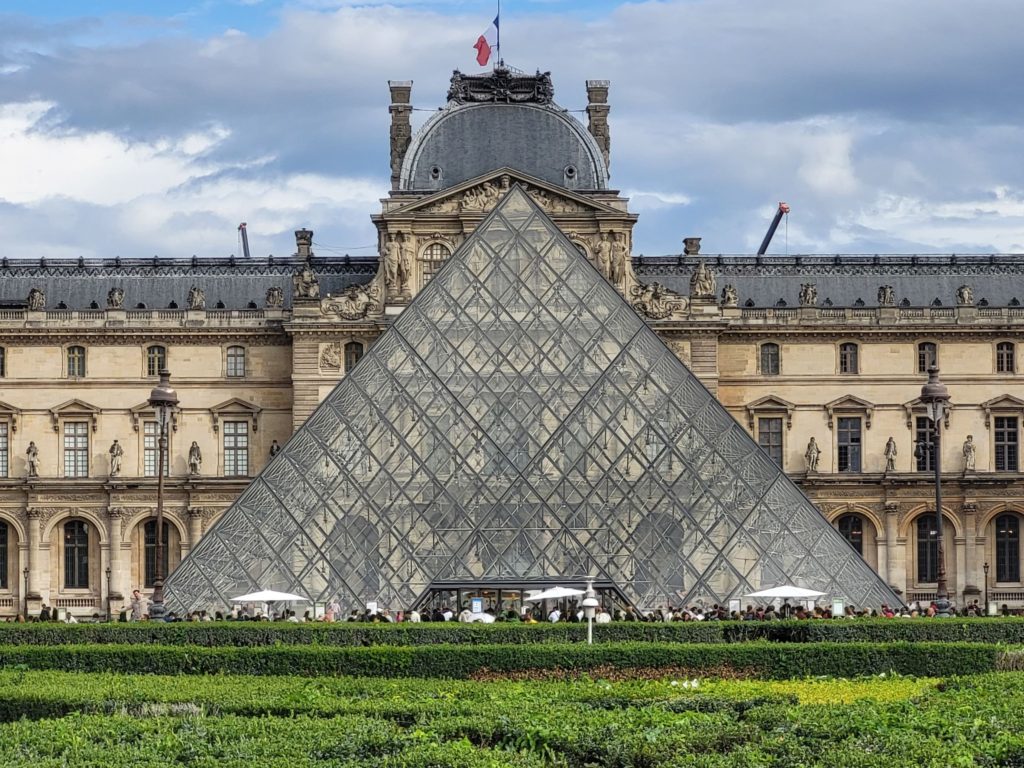
Then I walked across the river, enjoying the sight of boats on the water and the light on the Musée d’Orsay.
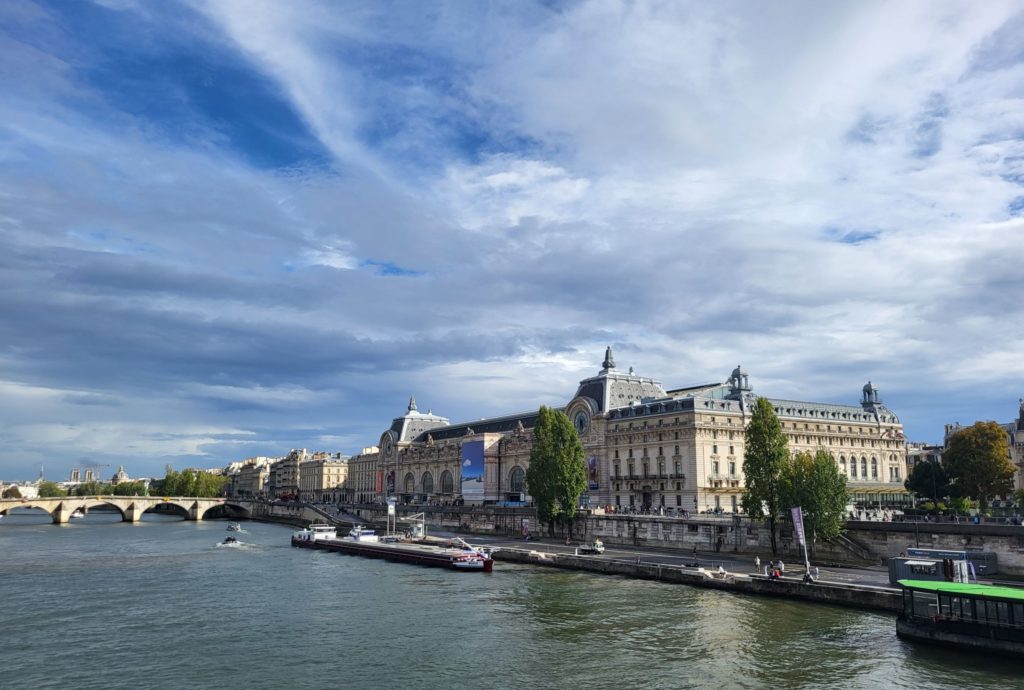
On my way back, of course, I had to swing by the Arc de Triomphe, majestic after a rain.
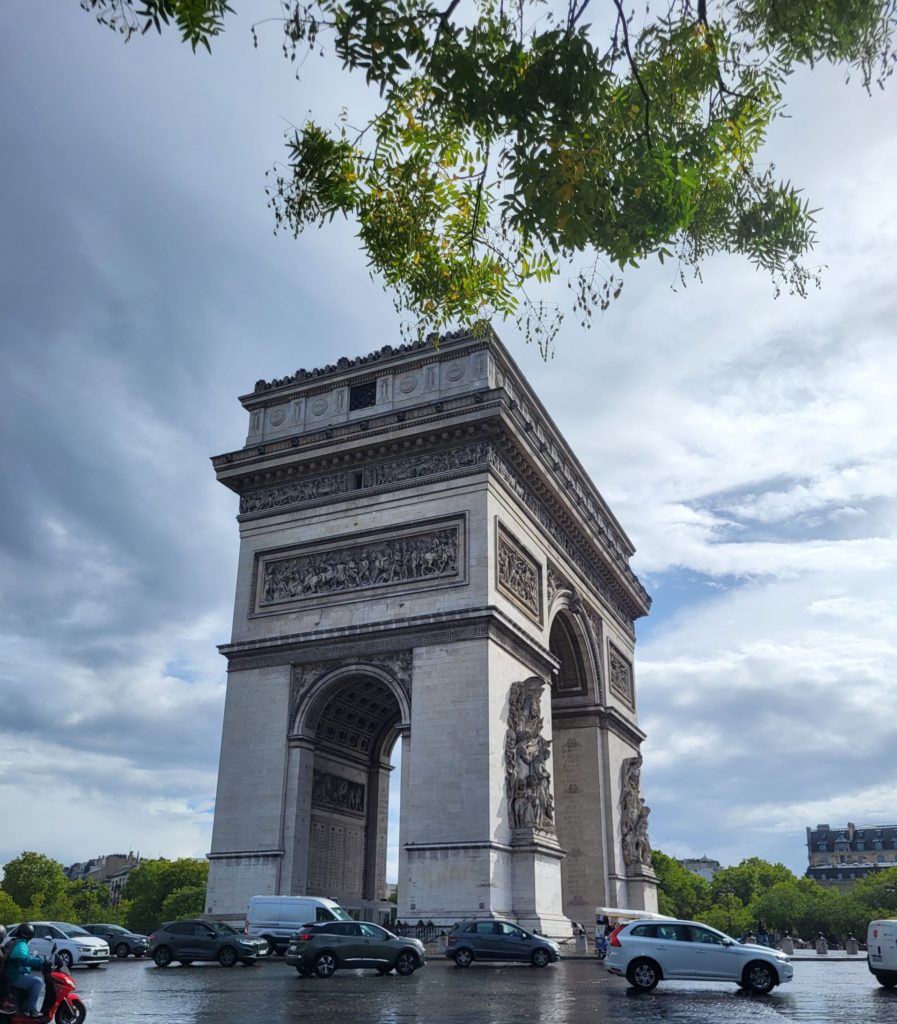
When I got home, I did some reading about the film and the book on which “Is Paris Burning?” is based. Choltitz, it turns out, may have exaggerated his appreciation of Paris in order to save his skin. The real reason why he didn’t blow the place up, recent French historical research has found, is that by that time the German occupiers were desperately short of men and munitions. They needed to spend what few resources they had fighting the Resistance. Those explosives were never planted, it seems.
Nor is there any proof that the meeting in the Meurice between Choltitz and Nordling occurred. The men knew each other, but that was it.
I didn’t care. I had rediscovered my love for the Paris of myth, the Paris of history, the Paris of elegance, and that was all that mattered.
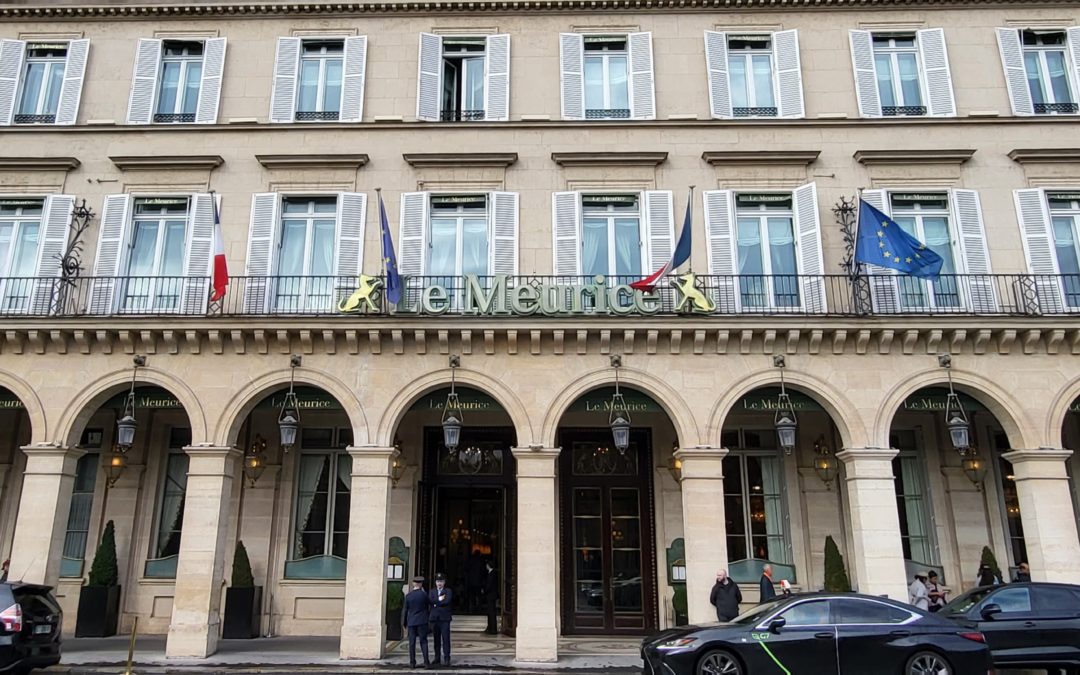
💕💕💕All these areas Paris are the Paris I love too
Harriet
Thanks, Harriet!
Hi Anne, coincidentally Susan watched the same film on our flight back to NY last week. I’ve got to see it. “Is Paris Burning” is a better book than film.
Thanks, Eric, I’m glad Susan saw that movie! And yes, the casting of IPB kind of reminded me of “The Longest Day” — here comes another movie star.
Anne, I’m so glad I’m reading your postings. Very enjoyable melding of emotions, information, and reflection. Looking forward to the next.
Thanks so much, Saul!
Enjoyed the virtual visits to the monuments and hearing about the facts behind the myths.
Thank you!
I will look for the movie. I’ve come to love Paris. Not just the tourist spots (although they are not to be missed) but just walking a neighborhood, sitting at a cafe, striking up a conversation, listening to a street or metro musician, listening to an organist practice in any one of the grand and less grand churches. A beautiful place. So glad to have met you and Charlie with Kathleen.
So glad you enjoyed it!
I make at least some portion of that walk every time I visit. My friend, Muriel Baksha ‘s parent had a wonderful albeit tiny resto in Montparnasse.
Thé Luxembourg gardens are
« Paris » for me. Many memories.
I so enjoy reading your blogs, Anne. Covid blew up our plans for a 2020 visit, but someday we will get there. When we do, I would love your suggestions for a bike ride around the city. I remember you did a post on that once.
I’ll take you! You just have to get here, you can rent the bikes in lots of places. I’m glad you enjoyed the post.
Another great article. I’ve got to say that the photos made me wish I could visit again.
Thanks, and I hope you do!
I’ll have to look for that movie. Thanks for this post, Anne, and your other blog posts as well.
Thanks so much, Anne!